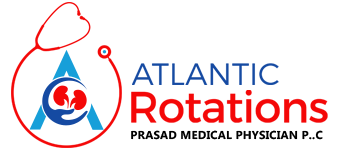Cardiology
OUR SPECIALIZED TREATMENTS
Cardiology
A cardiologist is an internist who has specialized training in the diagnosis and management of diseases which affect the heart and blood vessels. All cardiologists will have basic training in the recognition and treatment of these diseases using noninvasive techniques such as stress testing, ultrasound and nuclear techniques. A large number will also have the ability to perform cardiac catheterization, including performing balloon angioplasty and the placement of stents for occlusion in the arteries to the heart, as well as other organs. At times, cardiologists may refer patients for advanced procedures, including open heart surgery.
WHAT IS A HEART ATTACK?
A heart attack refers to the death of heart muscle tissue caused by a sudden arterial blockage, which is usually the formation of a clot on top of a pre-existing buildup of cholesterol, called a plaque. The most common symptoms associated are chest, arm and neck pain. Current technology allows the re-opening of blocked arteries to preserve heart muscle and thereby heart function. It is therefore imperative that medical help be sought as soon as chest pain and associated symptoms occur.
WHAT IS STRESS TESTING?
Stress testing is a method by which your heart can be examined for the possibility of coronary artery blockage. The test involves a progressive increase in workload under continuous electrocardiographic monitoring conditions. The test is carried out to a predetermined level based primarily on heart rate. Frequently, stress testing is performed in conjunction with echocardiography or nuclear scanning of the heart muscle. These methods increase our ability to make an appropriate and correct diagnosis. The test is usually performed in patients who have symptoms or in whom there is a strong suspicion of the possibility of coronary artery disease, such as individuals with multiple risk factors.
WHAT SHOULD I KNOW ABOUT CHOLESTEROL?
Cholesterol is a fatty substance in the blood which is deposited within the arteries, producing progressive obstruction to many different organs, particularly the heart. Cholesterol has two components, HDL (good) and LDL (bad). The total numbers and the relationship of these components determine their predisposition to the development of plaques within the arteries to your heart. Triglycerides are another fat which exists within your body and their elevation can result in the formation of the worst type of cholesterol and fat particles. A lipid profile allows us to examine all of these components in detail.
WHAT IS AN ECHOCARDIOGRAM?
An echocardiogram is a study which uses reflected sound waves to reconstruct the heart and all of its valves. It is usually performed with a probe through the chest wall but under special circumstances, the information can also be obtained using a probe which is passed down the esophagus, positioning it very close to the heart. Using the reflected sound waves, the chambers of your heart can be analyzed in terms of size and function. With the addition of Doppler techniques, very precise information can also be obtained about the valves of the heart. Echocardiography is also frequently used in conjunction with stress testing to allow the analysis of heart function at rest and in response to stress, usually exercise.
WHAT IS A STROKE?
A stroke is death of brain tissue due to either bleeding into the brain or interruption of blood flow to an area of the brain. In the adult, the most common cause of stroke is the interruption of blood flow. This can occur in situ at the location of the stroke within the brain due to vascular disease or it can be a result of the passage or embolization of particulate matter from arteries in the neck, the large aorta within the chest, or the heart itself. This particular matter can be clotted blood or fragmented bits of cholesterol. Stroke is the most common complication related to longstanding, poorly controlled high blood pressure or hypertension.
WHAT IS NUCLEAR CARDIOLOGY?
Nuclear cardiology is a technique for noninvasive evaluation of the heart, usually related to assessment for coronary artery disease and the pumping function of the heart. It is most commonly associated with stress testing, either exercise or with medication. With the use of Cardiolite, which is a common form of what we call perfusing agents, given with exercise and at rest, we are able to assess if any coronary artery blockages are present and how significant they are. We are also able to determine the pumping function of the heart at rest and following exercise. The radiation exposure involved is not felt to be a cause for concern.


 WhatsApp Us
WhatsApp Us